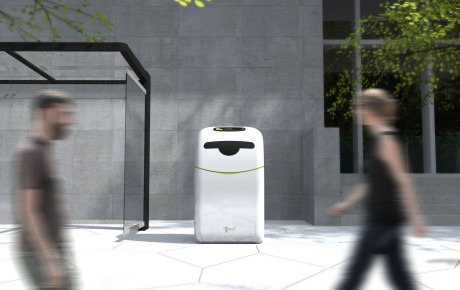The smart bins use a range of smart sensors, cameras, deep learning image recognition algorithms to make it so you’ll never again have to sort your paper from your plastic or glass — if the technology catches on, that is.
“Bin-e uses artificial intelligence to identify the type of waste that is being disposed of, segregates the waste, compresses it, and places it in the relevant chamber automatically,” Jakub Luboński, CEO and co-founder of Bin-e, told Digital Trends. “The embedded computer gathers data about every item that enters each chamber, and uploads it on the cloud database. The maintenance crew of the office building management company is notified via an app when to collect the contents of full chambers. The software is based on deep learning algorithms and learns with time about new objects. Data stored includes information on consumption patterns, which products and brands the users are consuming, the time, and quantity.”
.jpg)
Although we’ve covered some nifty trash disposal units in the past, the Bin-e trash can claims to be the world’s first smart waste bin company, complete with its own cloud-based Internet of Things platform. At present, the team is still showing off prototypes, but going forward, the plan is to develop solutions that could be used in offices, in outdoor environments, or even in regular homes.

“Bin-e will be introduced to the Polish and German smart buildings market this October,” Luboński continued. From there, the plan is to start rolling out to additional countries from 2018. No price has been finalized, but the plan is to charge an upfront cost for installation and then a monthly subscription fee.
If the results can help improve recycling rates and, heck, just make the simple act of tossing away an empty can of soda a little bit more fun, we’re all for this. It’s certainly not the weirdest IoT device we’ve come across, by any stretch of the imagination.
According to digitaltrends











